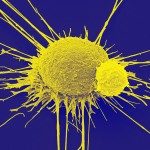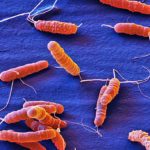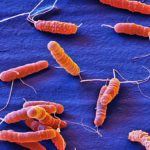Link to Pubmed [PMID] – 22143989
Toxicol. Sci. 2012 Mar;126(1):60-71
The multifactorial origin of gastric cancer encompasses environmental factors mainly associated with diet. Pteridium aquilinum-bracken fern-is the only higher plant known to cause cancer in animals. Its carcinogenic toxin, ptaquiloside, has been identified in milk of cows and groundwater. Humans can be directly exposed by consumption of the plant, contaminated water or milk, and spore inhalation. Epidemiological studies have shown an association between bracken exposure and gastric cancer. In the present work, the genotoxicity of P. aquilinum and ptaquiloside, including DNA damaging effects and DNA damage response, was characterized in human gastric epithelial cells and in a mouse model. In vitro, the highest doses of P. aquilinum extracts (40 mg/ml) and ptaquiloside (60 μg/ml) decreased cell viability and induced apoptosis. γH2AX and P53-binding protein 1 analysis indicated induction of DNA strand breaks in treated cells. P53 level also increased after exposure, associated with ATR-Chk1 signaling pathway activation. The involvement of ptaquiloside in the DNA damage activity of P. aquilinum was confirmed by deregulation of the expression of a panel of genes related to DNA damage signaling pathways and DNA repair, in response to purified ptaquiloside. Oral administration of P. aquilinum extracts to mice increased gastric cell proliferation and led to frameshift events in intron 2 of the P53 gene. Our data demonstrate the direct DNA damaging and mutagenic effects of P. aquilinum. These results are in agreement with the carcinogenic properties attributed to this fern and its ptaquiloside toxin and support their role in promoting gastric carcinogenesis.




